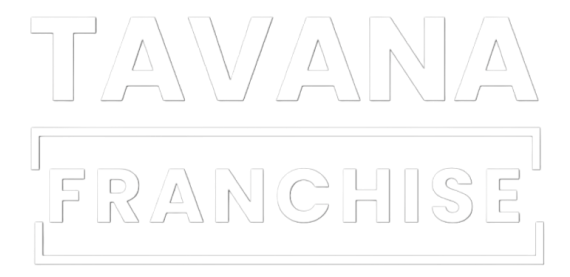The entrepreneurial spirit is alive and thriving in the United States. A staggering 430,000 new business applications are being filed every month in 2024. This is a 50 percent increase from 2019, according to the U.S Department of Treasury.
This rise in new business ventures shows a growing interest in entrepreneurship. Many aspiring entrepreneurs are looking into franchise opportunities as a way to succeed.
Franchising offers a proven model for starting a business. It provides the support and guidance needed to overcome the challenges of entrepreneurship.
Key Takeaways
- New business applications have surged by 50% since 2019.
- Franchising is a popular pathway for new entrepreneurs.
- A franchise business model provides necessary support and guidance.
- The franchise industry is experiencing significant growth.
- Entrepreneurial potential can be unlocked through franchising.
What is a Franchise Business?
A franchise business lets you start your own business with a proven model. It’s a chance to use an established brand and a successful system.
Definition of Franchise
A franchise is when someone, called the franchisee, gets to run a business using another company’s brand and system. This way, you get instant brand recognition and a proven business system.
You pay an initial fee and ongoing royalties to the franchisor. In return, you get training, marketing help, and access to the franchisor’s business systems.
Types of Franchise Models
There are many franchise models, each with its own features. The most common is the business format franchise. Here, the franchisor gives you a complete business package, including the brand and operating system.
Other models include product distribution franchises and conversion franchises. These allow you to distribute products or turn an existing business into a franchise.
Benefits of Franchising
Franchising has many advantages, like access to a proven business model and comprehensive training and support. It helps lower the risks of starting a new business.
Some key franchise benefits are:
- Instant brand recognition
- Proven business systems
- Ongoing support and training
- Marketing and advertising assistance
Understanding the benefits of franchising helps you decide if it’s right for you.
Advantages of Owning a Franchise
The franchise model offers many benefits for aspiring entrepreneurs. One key advantage is the chance to use a well-known brand. This can greatly help your marketing and lead to franchise growth trends.
Established Brand Recognition
Franchise ownership comes with the benefit of a well-known brand. This makes it easier to attract customers and build trust. For example, brands like McDonald’s and Subway have built strong reputations over years.

Training and Support from Franchisors
Franchisors offer detailed training programs. These cover everything from how to run the business to franchise marketing strategies. This support helps you manage your business well and adapt to market changes.
- Initial training on business operations
- Ongoing support for marketing and management
- Access to proprietary business systems
Access to Proven Business Systems
Franchising gives you access to tested business systems. These systems have been improved over time, lowering the risk of failure. By using these systems, you can focus on growing your business and using effective franchise marketing strategies.
| Benefits | Description | Impact on Business |
|---|---|---|
| Established Brand | Recognized brand name | Easy customer attraction |
| Comprehensive Training | Operational and marketing training | Effective business management |
| Proven Systems | Tested business models | Reduced business risk |
By owning a franchise, you’re not just buying a business. You’re investing in a system designed to succeed. With the right support and a solid model, you can grow significantly and become a successful entrepreneur.
Challenges You Might Face as a Franchisee
Franchising has its ups and downs. It gives you a tested business model and a known brand. But, there are downsides to think about.
Initial Costs and Ongoing Royalties
Franchising requires a big financial commitment. The initial fees can be high, and ongoing royalties can cut into your profits. It’s key to read the franchise disclosure document (FDD) to know all the costs.
Here’s a look at typical costs in franchising:
| Cost Type | Description | Average Cost |
|---|---|---|
| Initial Franchise Fee | One-time fee paid to the franchisor | $20,000 – $50,000 |
| Ongoing Royalties | Monthly or quarterly fees based on revenue | 4% – 8% of gross sales |
| Marketing Fees | Contributions to national or local marketing campaigns | 1% – 3% of gross sales |
Limited Flexibility in Business Operations
As a franchisee, you must follow the franchisor’s rules and standards. This ensures consistency but limits your freedom to innovate or change the business model.
You might not be able to alter your menu, prices, or marketing without the franchisor’s okay. This can be tough for those who value independence.

Relationship with the Franchisor
Having a good relationship with your franchisor is key to success. This means following their rules, attending training, and helping with marketing.
A strong relationship can offer valuable support and guidance. But, a bad relationship can make it hard to get help or solve problems.
In summary, franchising has many franchise benefits but also challenges. These include high initial costs, limited flexibility, and the need for a good relationship with your franchisor. Knowing these can help you make a better choice about your franchise investment options.
How to Choose the Right Franchise for You
Choosing the right franchise is a big decision that can affect your entrepreneurial success. With many options out there, it’s key to know what you want and what each franchise offers.

Assessing Your Interests and Skills
Before jumping into franchise business, take time to think about your interests and skills. What do you love doing? What are you good at? Picking a franchise that matches your interests and skills can boost your success chances.
Think about your past jobs, hobbies, and where you shine. This self-check will help you find the right franchise for you.
Researching Franchise Opportunities
After knowing your strengths and interests, start researching franchise opportunities. Look at franchises that match your profile. Check their:
- Business models
- Market demand
- Initial investment needs
- Support from the franchisor
Use online tools, go to franchise expos, and talk to current franchisees to learn more.
Evaluating the Franchise Disclosure Document (FDD)
Another important step is evaluating the Franchise Disclosure Document (FDD). The FDD gives detailed info on the franchise, like:
- Franchise fees
- Initial investment
- What franchisor and franchisee must do
- Financial performance data
Reading the FDD carefully will help you understand the franchise agreement. This way, you can make a smart choice.
Financing Your Franchise
When you’re looking to finance a franchise, you have many choices. Getting the right funding is key to starting and growing your business.
Common Funding Options
There are several ways to fund a franchise. These include:
- Traditional Bank Loans: These loans from banks need a good business plan and collateral.
- SBA Loans: Guaranteed by the Small Business Administration, these loans have better terms for small businesses and franchises.
- Franchisor Financing: Some franchisors help with financing to get you started.
- Alternative Lenders: Online lenders and other sources offer quick access to capital.
Each option has its own advantages and disadvantages. The best one for you depends on your financial situation, business plan, and the franchise’s needs.

Tips for Securing a Franchise Loan
To boost your chances of getting a loan, follow these tips:
- Develop a Comprehensive Business Plan: Outline your strategy, financial projections, and market analysis.
- Improve Your Credit Score: A good credit score can lead to better loan terms.
- Gather Necessary Documents: Have financial statements, tax returns, and other documents ready.
- Prepare a Strong Loan Application: Clearly explain your business vision and repayment plan.
Understanding Franchise Fees
Franchise fees are a big part of your investment. These include:
- Initial Franchise Fee: The upfront fee to start your business.
- Ongoing Royalties: Regular payments to the franchisor, usually a percentage of sales.
- Marketing Fees: Contributions to the franchisor’s marketing, which can be a flat fee or a percentage of sales.
It’s important to understand these fees to budget and keep your franchise financially healthy.
By looking into financing options, preparing a strong loan application, and knowing the fees of franchising, you can succeed in franchise ownership.
Success Stories: Learning from Top Franchises
Top franchises have grown a lot in recent years. Home service brands like pet waste removal and pool service are leading. They have strong brands and good marketing strategies.
Key Factors Behind Their Success
So, what makes these franchises successful? They adapt to new trends and opportunities. They also offer ongoing training and support to their franchisees.
Inspiring Franchisee Testimonials
Franchisees from top brands share their success stories. They talk about more revenue and a supportive community. Learning from these stories can help you in your own business journey.

